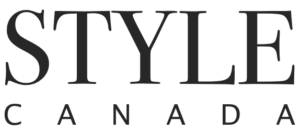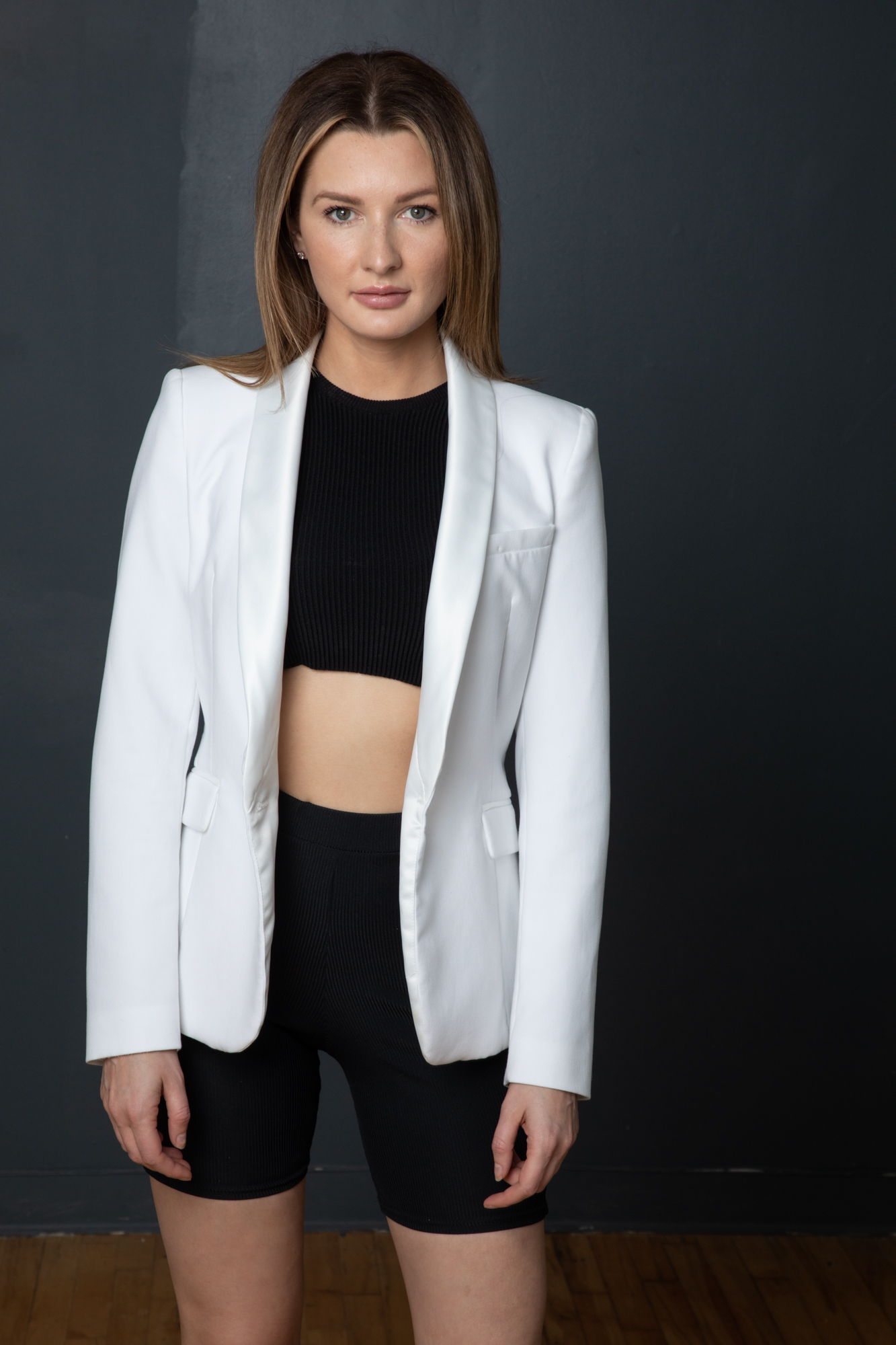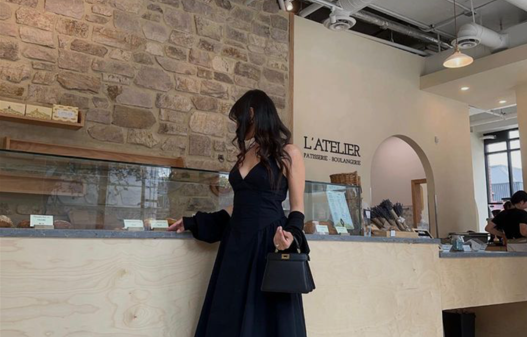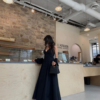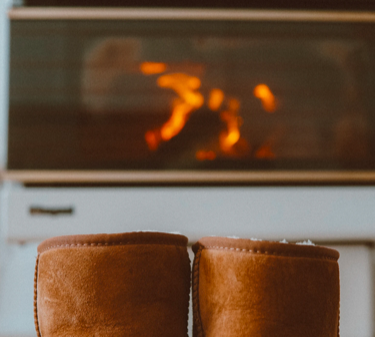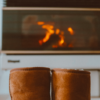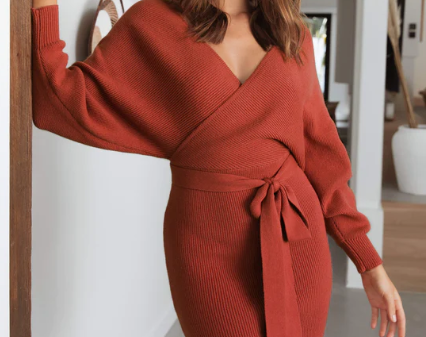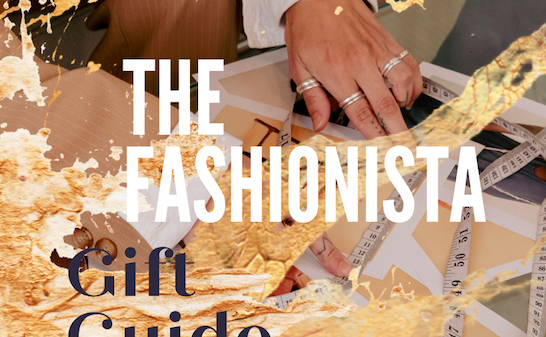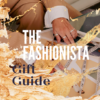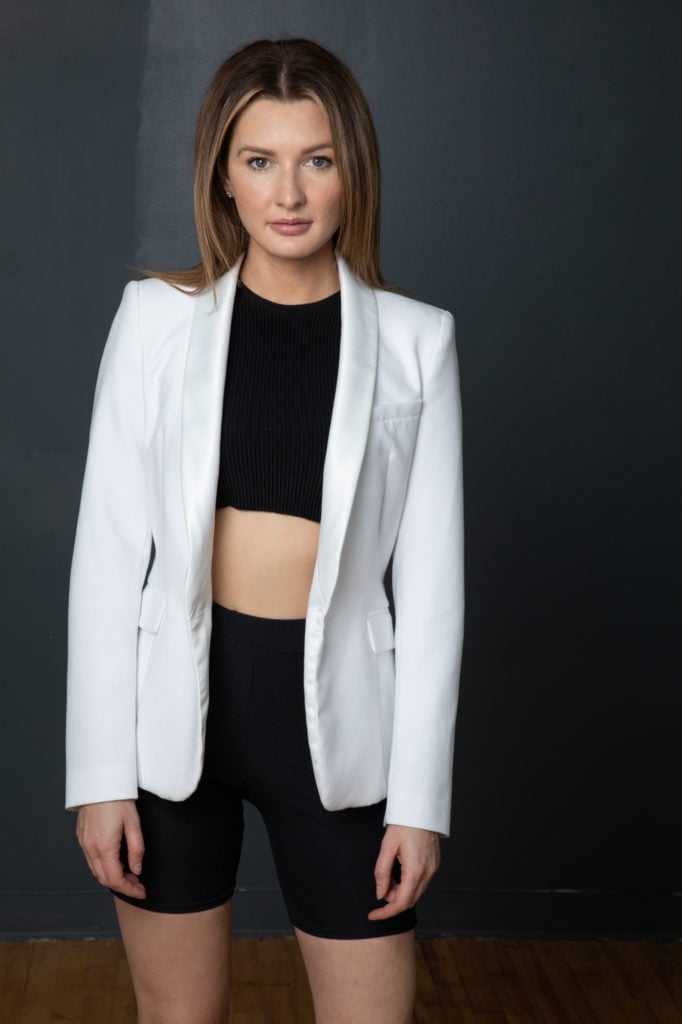
Source: EVIO
On this week’s Let’s Talk About… episode, Elise sits down with Brandi Leifso.
At the age of 21, Brandi Leifso was living in a domestic violence shelter when she founded Evio Beauty Group Ltd., an impact-led clean beauty brand on a mission to break stigmas with inclusive, good-for-you beauty products that connect us, not divide us.
Elise and Brandi talk about the beginnings of EVIO, the stigmas in entrepreneurship and starting a business, and creating an impact in the community.
“Everybody’s entrepreneurial journey is beautiful, but I think that there is a moment to acknowledge privilege within a lot of it… That concept of like rags to riches without actually acknowledging the privilege of the resources that are available in those early stages, in some of those stories, I think about how harmful that is for people in different types of circumstances.” Brandi tells Elise on Let’s Talk About.
To listen to Leah’s episode of Let’s Talk About, simply click here or search for “Let’s Talk About by STYLE Canada” on any major streaming platform.
Check out the show transcript below.
[00:00:00] Elise: Hi everyone, and welcome. This week, Let’s Talk About…breaking stigmas with Brandi Leifso from EVIO beauty. At the age of 21, Brandi was living in a domestic violence shelter. When she founded EVIO Beauty Group Limited, an impact led clean beauty brand on a mission to break stigmas with inclusive, good for you, beauty products that connect, not divide us. An alum of the Sephora accelerate and selected as one of shadowing magazines, 2018 women of the year, Brandy is an advocate for domestic violence reform and economic justice.
In 2019, she spoke at Forbes under thirties, first ever global woman summit in Israel and was recognized as one of Canada’s Top 25 Woman of Influence in 2020. This year, she’ll be speaking at the Haston Hustle in Austin, Texas, alongside Richard Branson. Brandi’s pursuit to build the brand from $15 in a domestic violence shelter to the world’s first impact led clean beauty giant has been option for a future film set to hit the film festival circuit in 2025.
Brandi thank you so much for being here with us today.
[00:01:04] Brandi: Thank you so much for having me, Elise.
[00:01:06] Elise: I was saying to you before we started to record, usually we like tighten up the bio a little bit, but you have so much incredible things going on that we wanted to kind of get it all in there from, you know, chatting alongside Richard Branson to some big news that got announced today with shoppers drug Mart, um, to the feature film.We have lots to talk about today.
[00:01:29] Brandi: So much, yeah, we’ve been busy!
[00:01:31] Elise: So why don’t we start by sharing a little bit about your story and just your journey. I know we’ve shared it on STYLE Canada before because you’ve been a part of some of the things we’ve done in the past, but for those listening, for the first time, let’s get started with that, you know, the, the first stage of having that $15 in the domestic violence shelter and that, and how you got into, you know, Shopper’s Drug Mart.
[00:01:57] Brandi: Yeah, absolutely. So I started EVIO at the time it was not called EVIO, it was called Karma Face Cosmetics while I was living in a domestic violence safe house shelter. I was actually living in the Vancouver rape relief in woman shelter and I made the choice to leave an abusive relationship, that’s when I moved into the safe house. And while I was there, I had $15 and a laptop and I spent my time distracting myself from my realities by watching YouTube videos, and in watching those YouTube videos, this was also like nine years ago.
[00:02:39] Elise: I was just gonna ask for a reference point, right? Because YouTube beauty videos nowadays are, you know, everyone’s creating those, that kind of content, but this was probably before that, that big surge of that.
[00:02:52] Brandi: It was, it was totally before this big surge and the it person to watch the makeup tutorials with was Michelle Fen. And she, as we all know, she blew up. Like she was the most, don’t quote me on this, but I think she was the most watched woman on YouTube at some point. And she really was at the forefront of these makeup tutorials.
But the reason why I also mentioned that it was nine years ago is because Photoshop was also very different nine years ago and we have made so many strides in stopping that horrible aspect of altering specifically women’s bodies in beauty and fashion. But nine years ago that wasn’t the case. We were still seeing a lot of that. So one of the ads that actually came up when I was watching these videos was a Photoshop ad that taught me how to actually like manipulate products and like utilize Photoshop properly.
And so I then photoshopped an entire catalog of fake makeup products. And then I took that catalog around to local boutiques and made pre-sales. And that’s how I bootstrapped the company, I told them it would take three months to get the product to shelves, and obviously I’m sitting here today and this is not a fire festival story.
You can buy our products at Shoppers Drug Mart now so clearly I got the products to the shelf. But it was a journey and something that I’ve kind of come around to sharing more of, because I think a lot of the time we hear all these overnight success stories – it truly has been nine years. The ups and downs amongst those nine years have been, it’s been a journey. Yeah.
[00:04:40] Elise: And I mean, you know, nine years. And so how old were you when, when you first started then?
[00:04:48] Brandi: I was 21.
[00:04:50] Elise: So it’s not like you had, you know, a ton of business experience, I’m guessing? What did you, what was it just complete, like guts and risk taking that made you think you could kind of get this product going or what had you done a little research in terms of, you know, here’s where I know I wanna produce it. Like, what did that look like?
[00:05:13] Brandi: Yeah. Speaking to the education perspective of not really having any business experience at 21, I also feel like it’s super important because again, like breaking stigmas is really what drives me as an entrepreneur.
This stigma of business education and that it’s required to succeed, it’s definitely an asset. There’s been so many times where my lack of education prevents me from perhaps moving forward more quickly, but there’s also been times where it’s actually really benefited me to be super naive.
And my last formal year of education in school was actually grade eight. I then went on to get my high school diploma through at that time too. There wasn’t the same kind of online education, so I mailed it in, I mailed in like duotangs in order to get my high school diploma later on.
But my last formal year of conventional education was grade eight. And so I truly had no understanding of what I was getting myself into and so I don’t really think that it was like there was 100% no strategy, right. Even taking risk, I didn’t know what I was doing. It was really just one foot in front of another.
There was no strategy. I didn’t think I was building a business per se. I mean, I did, but I didn’t. I had never even heard the word entrepreneur before. I didn’t know what that meant. I didn’t know. Nobody in my life owned a business.
[00:06:45] Elise: Well, that was gonna be my next question. Did you have some sort of, you know, figurehead that you kind of went to for guidance or anything like that, but no, nothing like that either?
That’s crazy.
[00:06:57] Brandi: Yeah, not at that point. I’m now really fortunate in where I’m at with my journey right now to have a lot of incredible people to lean on. But also what I’ve learned from their experiences, as well as they are to share their experiences with me, the consensus that I always get when I really need advice is everybody’s journey is so different that even though they’ve gone through their own journey and they can tell me about, you know, maybe try avoiding this or maybe communicate in this way, or be able to, to lend those advice. A lot of the times I’ll go to a mentor and be like, what do I do? And they’ll be like, I dunno.
[00:07:34] Elise: You know, it’s almost more like someone to bounce an idea off of, right? To get to your kind of maybe what your solutions up being, but I’d imagine there’s very few. I mean, there is very few times in business, anyone has the same journey, right? But that, I mean, you know, you touched on some things there in terms of obviously there was, when you think about resources, you had $15, so you didn’t have the financial resources. You didn’t have the human resources from other people assisting you with this. Really? So what resources did you have?
[00:08:09] Brandi: Yeah, I love that you asked this question because again, circling back into the breaking stigma aspect, I think everybody’s journey is really, really beautiful, but I love that you asked this question because it does lean into the conversation that touches on so much other economic injustices as well, which is a, a topic that’s really something that I’m really passionate about.
And everybody’s entrepreneurial journey is beautiful, but I think that there is a moment to acknowledge privilege within a lot of it. And so often I’ll hear people’s stories being like I started my company in my parents’ basement with my only savings of $4,000. And I’m like, you had a parents’ basement to go to.
Right? You had the support of parents period. You had a fallback plan. You had $4,000 savings. Like I didn’t, I didn’t have savings, let alone like another meal to come from. And there’s a lot of these stories that are framed from a, I hate this terminology, but I don’t have any other vocabulary to really support this thought right now.
But that concept of like rags to riches without actually acknowledging the privilege of the resources that are available in those early stages, in some of those stories. And I think about how harmful that is for people in different types of circumstances. Like the one that I was in, because then I would hear that and be like, oh, if that’s such a leap for them to succeed from that space, and I can’t even fathom having that kind of support.
And that is what is depicted in our media and in, you know, articles and business that is the hard start, you know, I must not even try, and so it’s also part of the reason why I feel like it’s so important for me to share the realities and it is, you know, you always hear like, oh someone has it worse.
And it’s true someone has an even harder starting point than I had. And it’s not like mine’s harder than yours or anything like that, but it’s the acknowledgement of the resources and the privileges that help create a more conscious ecosystem for there to be more more support even just mentally for those who may think that this kind of thriving and wealth is just not even a part of what they’re capable of in their lifetime. And so thank you one for asking that question of the resource aspect. I really had, in that moment, I did have a privilege from being able to lean on different people at different times.
I had some great friends around me from that perspective, like I’m trying to not dismiss some of the people whom were in my life. For example, when I left the shelter, I actually did go home and back to the relationship, and then I left again. And when I left again, I drove 13 hours and went and slept on my sister’s couch.
I had a sister’s couch to sleep on. That’s also a privilege and I’m really grateful for that. And then, you know, there’s a sequence of events that happened after that as well, but I had those kinds of resources and help. But then I also had the added challenge of trying to navigate the shelter system, trying to navigate the domestic violence and the police system.
And the court system, things like that while also trying to navigate building a business, and that business to me wasn’t oh, I hope I succeed one day. It was, I hope I can eat tonight. I hope that I can put gas in my car to get to a safe place. I hope that I can, you know at that point, my credit was so far in the hole that no bank would touch me with a tenfold pole. I didn’t even have a credit card. And that follows you then for years as well. So I had to then work really hard. And again, this isn’t, you know, that I had it so hard or anything like that. This is just the realities for a lot of people, not just myself, that I had to work really hard for seven years.
So if we think about this, it’s been nine years. So for seven years, all of that followed me. I was at a point where I was making more than a million dollars in revenue a year and still couldn’t get a credit.
Elise: Wow.
Brandi: So like, and how do you even get through the day, you can’t even pay for parking notes, get a credit card, let alone, like, so then you, you are up against all of these different challenges that are created that are it’s this intersectionality that’s really difficult to explain because it’s not just the lack of having a parents basement or a parents support it’s then the ripple effect that that creates, and then not being able to get traditional bank loans. So for example, even when we did get a huge order and you know, I want to celebrate it and I want to be really excited about it, it was really challenging during those times because we got this huge order for, I think it was like 65,000 pieces of our concealer, and I was so excited to accept it and like, oh, thank you so much. And then I realized, how am I going to place a deposit with the manufacturer to even make this?
And they don’t even pay me – and so I went around to different entrepreneurs that I was just starting to get to know. And I asked how, like, how did you finance this? And they’re like, oh, I just took a loan out from the bank or, oh my parents loaned it to me or, oh, my parents mortgaged their house or I mortgaged my house that my parent helped me buy or, you know, all of these different areas in which not to say it’s not challenging having to re-mortgage a house and all of these things to, to be able to leverage these opportunities.
But where do you go when a bank won’t touch you? You know, you can’t get out a mortgage or anything like that. It is that hereditary aspect where it’s going to like if I choose to have children, my children won’t have to experience that, but it takes somebody breaking out of that and growing to like, I guess they call it like class jumping.
And also jumping out of some hereditary norms that are uncomfortable within these abusive natures to be able to even get a credit card, you know what I mean?
[00:14:27] Elise: Yeah. Well, it’s not the same thing and that I obviously didn’t live your experience, but I know even for things from when I was sick with ovarian cancer and the certain things that I couldn’t get from the bank, like I couldn’t get insurance on my home because of that.
So it’s not the same thing by any means, but like, there’s these, I guess, I think what I’m trying to relate, what, relating with you on anyways, the things that people don’t realize that can come easier. Maybe if something didn’t happen, I guess there’s all these like little tangents right to, you might know the one big problem that, okay.
You were in a domestic violence shelter. We know that, but we don’t think of the, oh, you couldn’t get the credit card. Oh, you didn’t have APL. You know what I mean? We don’t think of all those offshoots of what that one main thing is and all the struggle that can come and not just at that time.
Right. Not just nine years ago, not just eight years ago, but like, to your point, when you were really successful, there was still some of those, so yeah, there’s. A a definite benefit I think in sharing your story to remind people of those like little nuances almost that are actually quite major in many ways that I know with your company too, is it over like half a million dollars of product that you’ve given away to shelters and things like that to, so talk to us a little bit about you had that experience.
What are you trying to do to make it better for those that come behind you? Because you’re doing a lot.
[00:15:52] Brandi: Thank you. First and foremost, I’m trying to be able to provide a platform to have these discussions about the internationalities of impact and the internationalities of not just domestic violence, but economic injustices, and injustices in other ways as well, because this is just how I’ve experienced it, but to your point, you’ve experienced your own experiences when you became ill in a way in which also created these challenges and injustices and, and I can’t relate to being ill, but what I can also relate to is that you already don’t have, like, your capacities already low because you’re already up against so many challenges.
And then it’s just one challenge on top of the other, on top of the other, on top of the other. And one human only has so much capacity. You know, so that, also it’s the intersectionality of the human experience in all of that, that often gets left behind because then you, when you’re like, oh, well you can’t get a credit card, just do this.
Okay. You go do that, and then next barrier, okay, just go do this, and then you go do that. At what point are you just so exhausted, exhausted running 10 miles further than, than all of the people that let’s face it in business you’re compared to your competitors. I mean, that’s competitor compare, that is the nature of it.
So at what point are you just like, you know, you get knocked down and you’re like, I’m just gonna lay on the bat for a while. So yeah, that’s something that I think even just creating a platform and having these authentic conversations, I’m hoping creates more awareness to the internationalities of things so that our world can kind of catch up to to what our world looks like today and be able to have solutions that are based on performance and based on solutions that are going to compensate fairly to those that are working hard to change their circumstances because, just because you become successful does not mean that you were smarter or that you worked harder.
Um, sometimes it just simply means that you were well positioned to succeed.
[00:18:12] Elise: With those resources in some ways, right? Yeah.
[00:18:15] Brandi: Yeah. So something that EVIO really works hard in doing is not only you know, donating when we can so we have donated funds and products of more than $510,000. And in addition to that, though, we really align ourselves with partners that also understand the intersectional realities and are willing to sit down and learn and unlearn with us and with our partners. And we also don’t want to show up to an environment and say, we’re going to create impact and then just throw a check or throw product, because you and I both know that even if those resources and the money were available, that capacity is another, is a there’s a lot of, again, intersectionality is to being able to create change within it and an organization can’t just come in and throw money at something.
And if that was the case, I mean, world hunger, all of cancer, would be a thing of the past, but it isn’t – because there’s all these challenges, presented with that. So, what EVIO really tries to do is actually connect with community. And so what we really pride ourselves on at EVIO is that we are an impact led clean beauty brand that co-creates with cause based organizations. For example, we have a lip arm collection that is partnered with the Free From Organization that is focused on survivors, creating wealth, and they have a plethora of different programs that are also pushing towards policy change, so that not only are we providing, you know, funds to survivors in these moments and helping keep people safe, but also trying to create meaningful policy change in the future.
[00:19:56] Elise: Because that’s a lot of what it comes down to. Right? Like what does the change in the system come from? So that sounds like an amazing organization.
[00:20:08] Brandi: Yeah. So EVIO really, I mean, as we know better, we do better and we’re constantly finding new ways to really lean into that, and we’re working with different partners to also change internal policies.
So how can, you know, how can some of our partners create policies internally with their employees to be able to have, you know, domestic violence relief programs, if an employee is leaving a abusive relationship or, you know, there there’s different ways, to be able to create that impact internally and then ultimately bring it to a larger policy perspective from a government perspective.
But I think a lot of that also starts from the community, really kind of demanding these changes and also showing up with those changes already. So, we also work with organizations that are ensuring of inclusivity and something that EVIO also really works hard on is ensuring that we’re a gender fluid company.
So the beauty products, we don’t just focus on gender based violence, or um, I hate this term, but like women’s causes because it’s not really about women, it’s societal structural issues. So, we really try to ensure that we are looking at a number of different intersectional realities of how we can just make the world a better place, and EVIO by no means are experts. So we, we tried to lean into communities to learn and how we elevate those causes and bring more awareness to those social issues.
[00:21:41] Elise: Listening to everything that you do I, and I don’t know how your company is structured, but I feel like there must be like the beauty team and then like the social impact team?
Because it sounds like you have two companies running simultaneously. Is that true? Like how do you, or is it, I’m sure it’s obviously ingrained in your ethos, but there must be like that to do that amount of social impact work. There must be like a lot a dedicated kind of segment to your business, I guess about that. Or you, I mean, you tell me?
[00:22:14] Brandi: Yeah, it’s literally our DNA. So when we are talking about a marketing campaign, the first thing that we talk about is how is this going to create impact? And then, and so it really is all like intertwined and we’re also still a very small team. So definitely it is completely intertwined within each other, but also because we talk about it so much, our partners often approach us with that same approach.
Then our small team becomes a little bit bigger with all of our partners. And so it certainly isn’t something that we’re doing on our own. We have so much support by so many incredible organizations and partners like Shoppers Drug Mart, and so that, that allows us to really create that impact.
[00:23:00] Elise: That ripple effect makes total sense. I appreciate you explaining that because I do think, you know, you mentioned you’re a small team. I do think a small team can get a lot more done sometimes than a big corporation because I’ve worked in both of those scenarios, but it’s amazing then, also to your point, kind of push that into how you work with your partners and then have that ripple effect happen, which is awesome.
I wanna go back to something you said earlier about, it kind of ties into like the resources and the exhaustion, you obviously had those moments, so when, I guess one of the things I was thinking about too, when I asked you about resources was almost like, your personal kind of toolkit, and what made you get back up from the mat? Like what did that look like for you? Because I’m sure that happened probably a few times a year as an entrepreneur, maybe even more at the beginning.
[00:23:52] Brandi: Sometimes a few times a day, honestly, by 11 o’clock in the morning I’m like, this is awesome. I totally know what I’m doing, and by two o’clock I’m like, I’m just gonna lay here, like forget it. And then by three o’clock I’m back on the horse, you know? So, um, it’s yeah, it’s very true. I, in the last year in particular, I’ve got to say that the last year has probably been one of the hardest years, including the years in the shelter that I have ever had as an entrepreneur.
[00:24:24] Elise: Wow. Okay.
[00:24:25] Brandi: And it’s not because of the pandemic and it’s not because of, you know, things that people might traditionally think. I think that a lot of it comes from choosing to scale, choosing to continue to grow and broaden the vision and having really high expectations of this vision while also being up against some of those limitations of resources and where we come from, where I come from, like the limitations that I come from, and those two things colliding in a really big way. And then also colliding with, I believe that our businesses only grow as much as we grow as a person.
[00:25:11] Brandi: That has been a really hard thing. And this is a little bit related to COVID, but I recognize that for years now, I didn’t really ever sit with my thoughts and with myself, I immediately literally starting in the shelter immediately threw myself into something much bigger than myself and this brand and then all of it. And if I, you know, was feeling a certain way, I could make myself busy and create really cool things from it and go meet incredible people and jump on a plane and go to a cool party or, you know, continue to distract myself with…
[00:25:55] Elise: Just go, go, go. Right?
[00:25:57] Brandi: Right. And then all of a sudden COVID hit and you couldn’t get on a plane. You couldn’t run from anything. You literally had to sit for myself in a 700 square foot department with my thoughts, and I did not like what I was sitting with, and it was things that I thought that I had already dealt with.
And in many ways I did, but that’s the thing about a personal journey is then new things come in and you recognize new things and you have new perspectives and you have new awakenings and all of a sudden you’re sitting in your apartment, not being able to escape, having to deal with them, and having to experience that while also simultaneously constantly talking about my story, and then while simultaneously trying to grow a business and being compared to other businesses that maybe have a different trajectory or, you know, that are really just focused on selling makeup, whereas to your point, we’re kind of focused on two things, but a little bit of a sidetrack on that, I also feel like, look at a tobacco company, for example, they lobby all the time.
Elise: True. Yeah.
Brandi: All the time to line their own buckets, so let’s do the same thing as businesses. I really feel as if we went from clean to sustainable, and I think our future of business, not just generally, act led why can’t, if tobacco companies can lobby to line the pockets in order to have new laws implemented for their tobacco, then we can certainly lobby to have better human rights for those that are going to be using our product.
Elise: Absolutely. Yeah.
Brandi: And so I kind of see it just in that same way, we’re just doing the same thing a tobacco company is doing, but I think much more positive way.
[00:27:44] Elise: Definitely better.
[00:27:49] Brandi: So that all of that kind of coming to a perfect head created this really challenging thought where either we’re gonna die or we’re going to thrive like as a company, through this experience in the last year, because we can’t stay where we are. We need to scale. We have all the ability to scale, but we don’t have the resources to scale.
It’s this economic stance right now where it’s very difficult to raise money, and we’re kind of this in between where we’re in this weird adolescent phase, where we’re no longer a startup, but we’re also not a large company. We’re not a sustainable, you know, that can compete with these others in the beauty space.
And so it’s this kind of an awkward adolescent space and I’m in this awkward space of my healing as well. And so again, it leans into that capacity and I really struggled with that over the past year, but, to your question. Some of those tools that I really leaned into is I’ve always been a really big advocate for trying different modalities of therapy and finding what works for you in that moment.
And sometimes what worked for me then doesn’t work for me now, but I’ve leaned into psychedelic therapy currently right now, what is making a big difference for me is hypnotherapy. So I do hypnotherapy sessions once a week and again, leaning into understanding the privilege of all of that, because all of these modalities are wildly expensive – they’re not accessible to everybody either.
[00:29:26] Elise: Yeah, and not often covered even if they were maybe at a corporate company. Yeah. No, but I appreciate you sharing, I appreciate you sharing some of that. One of the questions came up as you were telling that kind of giving that backstory is, do you feel like sharing your personal story like you’re doing today has helped share or helped rather heal some at all? Like do you feel like, or has it been made it more difficult at times too?
[00:29:56] Brandi: Yes, and yes.
[00:29:58] Elise: As I said, I was like, wait, maybe the opposite too?
[00:30:02] Brandi: Actually a perfect example of that is actually last week during our Shoppers Drug Mart launch – so I was fortunate enough, like huge shout out to Shoppers Drug Mart – they are the most incredible and perfectly aligned organization to help us champion impact led business and impact led beauty. They’ve really gone above and beyond to bring support to EVIO throughout this time of the launch. And one thing that they had provided us with was I spoke to their beauty conference last week in front of 1500 beauty managers and beauty advisors.
And so it was the sea of these beautiful phases staring back at me. And I was asked to share my story, and this was already an emotional week coming off of a very emotional year, coming off of a very intense summer, with our raises, with you know, some of just these things that I never thought would be my realities.
We also are working with a new board of advisors, Maggie, who was the former CEO of Yves St. Laurent on beauty – she is a dynamo, the most incredible woman, and so all of these things that when I sit and think about it, like it’s emotional to think about, um, you know, how much we’ve had to overcome to get here.
And also, you know, how important it is to continue to share this story with now this platform. I mean, this is literally why we did it and it’s, it’s our entire DNA in existence, but when I got on that stage, the emotions just like rushed over me. I could stand on that stage and talk about beauty education and I could talk about resilience, impact business, entrepreneurship, um, empathy for days and sit in my power.
But when I got on stage and I started talking about my experience with the police, I had to stop because I was so emotional. So that’s challenging because now not only as a Founder, am I dealing with the experience of this overwhelming week of, and this overwhelming summer of a lot of these milestones that often, you know, most people never experience in their entire lives.
And I certainly thought I would never experience in my life. And now I’m experiencing all of that, plus standing on stage in front of 1500 people staring back at me, telling them some of the darkest moments of my life, and then getting off stage and having hundreds of women share their experiences with me.
[00:32:50] Elise: I was going to say, I’m sure after you shared that you had more people coming to like people coming and sharing their stories after.
[00:32:57] Brandi: Yeah, and then ending all of that with please buy our makeup.
[00:33:01] Elise: Well, no, you bring up an interesting point though, that I’ve often thought in like my situation more so.
From the charity side and there’s many women that pass away from cancer in our organization. And so it got to a point – you don’t have to necessarily answer this – but, I just wonder, like, it, it got to a point where we had to hire grief counselors on and things like that because you are sharing, and you sharing all that emotion.
Yes, it’s wonderful and beautiful that we all kind of come together as a community. But I don’t think we’re, you know, we’re such a sharing society now that we’re also not thinking about like, oh gosh, like, what is that doing to me as I’m like re-opening and re-hashing this now on this really public forum.
And then I also have to receive everyone else’s story and like, how am I showing compassion? I’m sure you were crying too. Like just all of the things. Right? And so as a society, like want to know the brand story that like, you can’t really get away from it, but how do you also make sure that you’re like taking care of yourself?
I don’t know the answer to that. I think you, you did say some of those things that you’ve done, but it’s a lot I can imagine. That would be super overwhelming and a stage of that size, I feel like I wanna hug you for doing that.
[00:34:23] Brandi: Wow for sure. But then also on the flip side of that coin, when you get that kind of response, it also is, it’s a reminder as to why it’s so important that you do it.
You use this platform for that moment because I, you know, something that’s so interesting about the Loblaw’s umbrella and Shoppers Drug Mart, and I hope it’s okay with them that I’m saying this, but, they’re the one of, if not the biggest employer in all of Canada.
Elise: Oh, wow. Okay.
Brandi: And so statistically, if a hundred thousand women are experiencing what, something similar to what I experienced every single year in this country, some of those are their employees.
Elise: Yeah, for sure.
Brandi: And so if I was able to stand on that stage and share how I was able to make my wildest dreams come true and now stand on that stage and receive all of this loving, incredible support as I make these dreams come true while also creating a new category of beauty and impact led so that we can change the path forward so that themselves and myself and the people to come afterwards are going to have a better new experience and also have somebody to look up to.
If they ever find themselves in that circumstance, because Brandi in the shelter staring at this ceiling, certainly didn’t have anybody to point to being like, you know, her life was better after the shelter, mine can be too – that didn’t exist. And so being able to share in that experience with, and being able to share in the experience of not just trauma sharing, but actually making change together and actually doing it in an intersectionality way where it’s not us standing up and being like EVIO’s donated half a million dollars, like pat ourselves on the back, like actually leaning into the policy change, actually leaning into sharing for the purpose of change.
Not again for trauma sharing or for trauma profiting or anything like that, it really is, has been in a way, and I think that’s where the fine line of the challenges of to your point, it’s almost like running two businesses is both of those are so equally important to EVIO that it literally is one doesn’t exist without the other.
And it’s that authenticity that I think if I didn’t share my story and experience I’m not sure you could create something in the way in which EVIO exists and is able to have these incredible partners come on board to create meaningful change that will lead to policy change, which will lead to a better future.
Without that moment, and so again, this kind of like fine line.
[00:37:19] Elise: Yeah, that’s a perfect way of saying it, in a perfect spot, I think to, to wrap up too, because I’m leaving this conversation so inspired. I mean, you’ve shared some of the amazing milestones that are happening this year with the business or happened even between, you know, your new board, the launch with Shoppers – I know you have some great product launches coming up as we get into the holiday. Is there anything else that we need to keep our eye on this? I mean, we will keep our eye on you by all means, but anything else going on with the film or anything to touch?
[00:37:55] Brandi: That is such a surreal experience, which leans into exactly what we were just discussing as well is I’m not, you know, sharing my story or I didn’t agree to auction my life story for a film because I was like, oh, my life is a film like there is, domestic violence is often depicted in the medium one particular way. And it’s often a single mom who is living in poverty, whom you know experiences domestic violence, and then she leaves this relationship and it’s her and her child and they are safe, and that is that’s the happy ending.
And that is a happy ending, don’t get me wrong. That’s incredible. That’s you know, what we can all strive for and hope for, and help create for one another. But that’s not where domestic violence ends and same with other people’s experiences. There again, there’s so much intersectionality to it and there’s, that’s not, I’ve never seen my experience depicted in media, and I think that it’s really important for people to continue to dream while experiencing these traumas and these challenging times in their lives. So being able to be the muse for a film that is going to, you know, depict hope and change and, you know, that the topic of entrepreneurship, which is also a hot thing in the media. You know, we’re seeing like the heros group or the WeWork, that’s true. Yeah. All of those things, I think, you know, it’s gonna be really interesting too, as we were talking about resources within entrepreneurship. I think it’s gonna be really interesting to share a different entrepreneurship journey on, on film as well.
So I’m just as, as like, I don’t know what to expect either, and I’m trying to have no expectations because what is the real weird moment to watch your life play out on, on a film? So I’m really, really grateful and excited for that opportunity.
[00:40:05] Elise: Yeah. Well, we’ll keep an eye on your spaces on social and on site, just to see when that kind of comes out, because hopefully it’ll be a part of, one of the film festivals or something that we’ll be able to catch it on. Yeah. Well, very cool. Thank you so much, Brandi for being here with us today. I know it’s, it’s been a big last few months and it looks like it’s going continue to be a big year. So thanks for taking the time to chat with us and for sharing your story, because it is, it can be also emotionally exhausting at points in time, so I appreciate you taking time out of your workday.
[00:40:40] Brandi: Thank you so much, Elise. This was such a great conversation. I’m grateful to be here with you!

